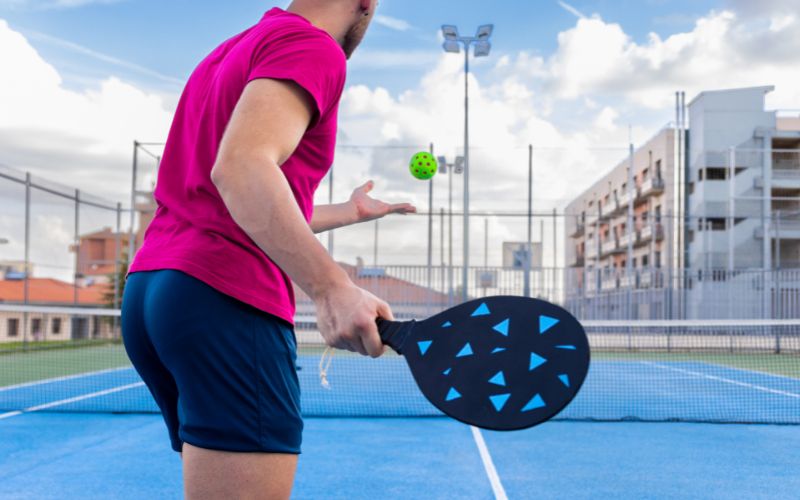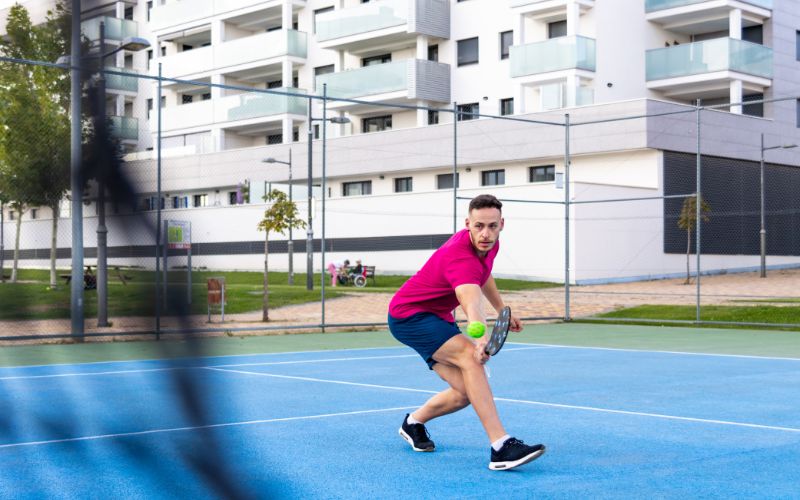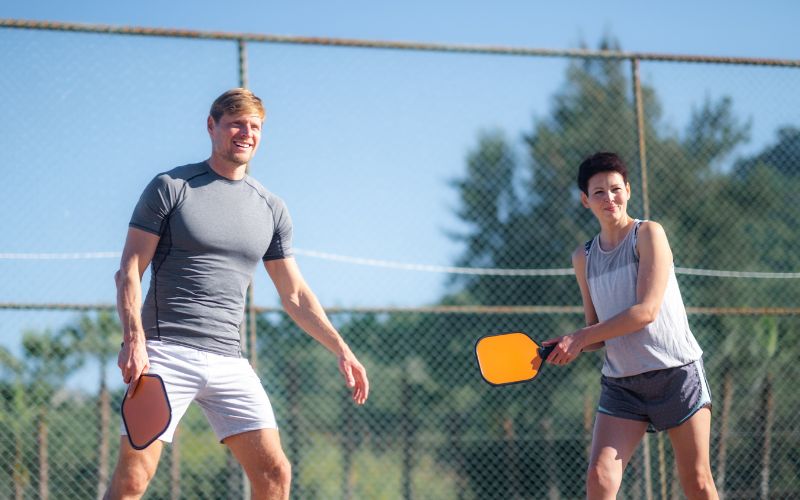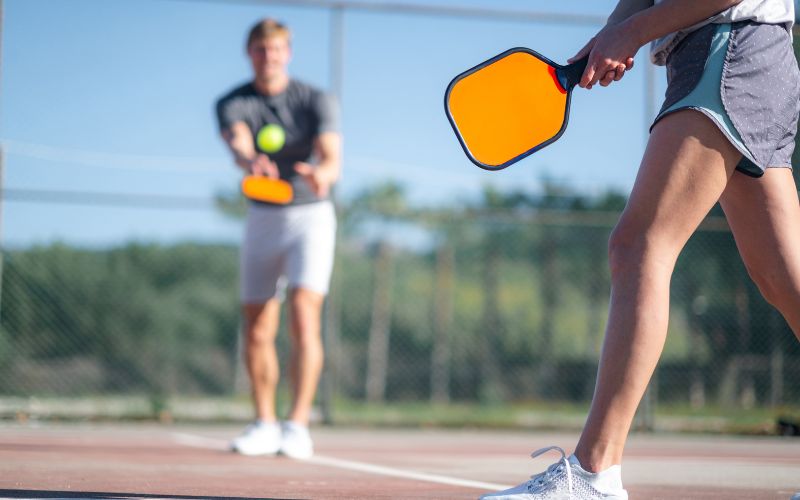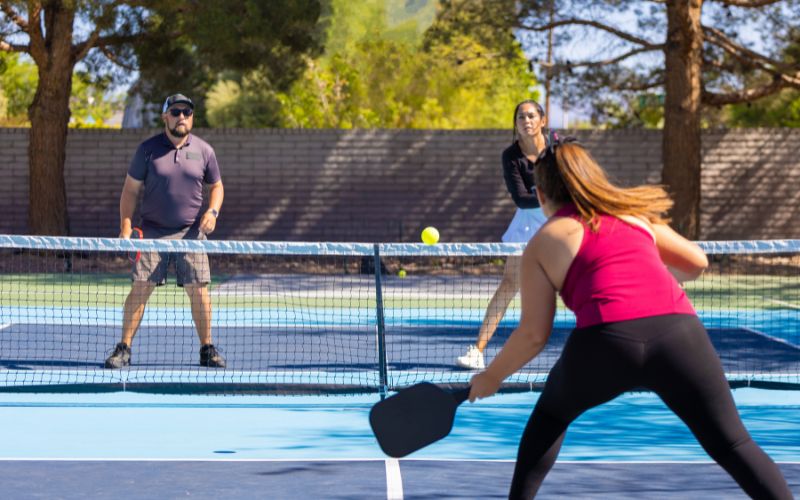Pickleball is a game that has rapidly gained popularity across the United States, becoming known as “America’s fastest-growing sport.” It’s a unique blend of tennis, badminton, and table tennis, played on a smaller court with a paddle and plastic ball. One common question among beginners and enthusiasts alike is, “How long does a pickleball game last?” The duration of a pickleball game can vary depending on several factors, including the format of play, skill levels of players, and scoring system. Let’s delve into the details to understand the different aspects that influence the duration of a pickleball game.
The Standard Duration of Pickleball Games and Matches
A single game typically spans 15 to 25 minutes, while a full match, played in a best two out of three games format, usually lasts between 30 and 75 minutes. If one opponent dominates the match by winning two consecutive games, it can conclude in as little as half an hour. However, if the match extends to a third game, it may easily exceed an hour in duration.
Single Pickleball Game
Within a match, a single pickleball game follows the same time frame of 15 to 25 minutes.
Each game consists of points scored by the serving team until the opposing team wins the serve and scores points.
The length of a single game can also be affected by factors such as the efficiency of players in scoring points, the number of rallies, and the adherence to rules like the non-volley zone.
Length of Pickleball Tournament
The length of a pickleball tournament can vary widely depending on the tournament format, the number of participants, and the rounds played.
Some tournaments may be completed in a single day, while others, especially larger events or championships, may span multiple days or even weeks.
Tournaments typically consist of various divisions based on factors such as age, skill level, and gender, with each division having its own set of matches.
Matches progress through brackets or pools until winners are determined in each division.
Pickleball tournaments can be intense and competitive events, with players participating in multiple matches over the course of the tournament.
Understanding Pickleball Game Duration
Pickleball Games and Matches
A pickleball game typically refers to a single instance of play, while a match encompasses multiple games played to determine the overall winner. Pickleball matches can be played in various formats, including singles and doubles.
Scoring System
The scoring system in pickleball plays a significant role in determining the duration of a game. Traditionally, pickleball uses a rally scoring system, where a point can be scored by either the serving or receiving team. Matches are typically played to 11 points, and the team must win by at least two points.
Format of Play
Singles Play
In singles play, each player competes individually against their opponent. This format tends to be faster-paced than doubles play, as there are fewer players on the court.
Doubles Play
Doubles pickleball involves two players on each team. The dynamics of doubles play, including teamwork and positioning, can affect the duration of the game.
Skill Levels
The skill level of players can influence the pace and duration of a pickleball game. Skilled players may engage in longer rallies and employ more strategic shots, leading to extended playtimes.
Court Size and Rules
Pickleball is typically played on a badminton-sized court with specific markings, including a non-volley zone and a service area. Understanding and adhering to these rules can impact the flow of the game and, consequently, its duration.
Factors Affecting Game Length
1. Skill Levels and Gameplay
Games involving players of varying skill levels may vary in duration. Skilled players tend to engage in longer rallies and employ advanced strategies, prolonging the game.
2. Scoring Opportunities
Each serve presents an opportunity to score a point. Depending on the serving team’s effectiveness and the opposing team’s defense, points can be scored quickly or after extended rallies.
3. Game Format
The format of play, whether singles or doubles, can significantly impact the duration of a game. Doubles games often involve more strategic positioning and teamwork, potentially leading to longer playtimes.
4. Game Strategy
The strategy employed by players can influence the pace of the game. Aggressive play may result in quick points, while a defensive strategy can extend rallies and prolong the game.
Conclusion
In conclusion, the duration of a pickleball game varies depending on several factors, including the format of play, skill levels of players, and scoring system. Whether playing in a casual setting or a competitive pickleball tournament, understanding these factors can help players anticipate the length of a game and adjust their strategies accordingly. With its fast-paced action and emphasis on skill, pickleball offers a dynamic and engaging experience for players of all ages and abilities.
Frequently Asked Questions
1. How long does a typical pickleball game last?
On average, a pickleball game typically lasts between 15 to 25 minutes. However, the duration can vary depending on factors such as skill levels, gameplay intensity, and adherence to rules.
2. What is the duration of a single pickleball game within a match?
A single pickleball game within a match follows the same time frame of 15 to 25 minutes as a typical game. Each game consists of points scored by the serving team until the opposing team wins the serve and scores points.
3. How long does a pickleball tournament usually last?
The length of a pickleball tournament can vary widely, ranging from a single day to multiple days or even weeks. Larger tournaments with more participants and multiple divisions may span longer durations.
4. What factors influence the length of a pickleball game?
Several factors influence the length of a pickleball game, including the format of play (singles or doubles), skill levels of players, scoring system, game strategy, and court size and rules.
5. Why do doubles pickleball games tend to last longer than singles games?
Doubles pickleball games typically involve more strategic positioning, teamwork, and longer rallies compared to singles games. These factors contribute to extended playtimes in doubles matches, resulting in longer game durations.

